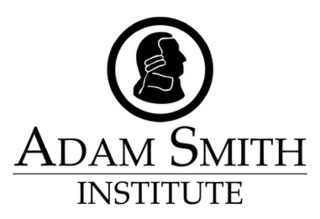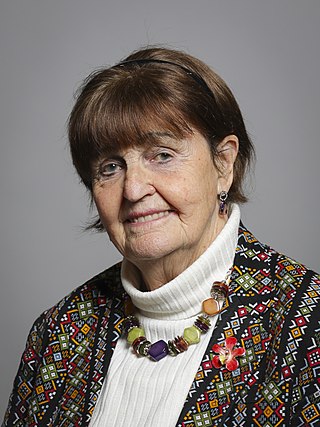| Merged into | Henry Jackson Society |
|---|---|
| Formation | 2007 |
| Dissolved | 2011 |
| Headquarters | London, UK |
Director | Douglas Murray |
The Centre for Social Cohesion (CSC) was a British think tank with its headquarters in London. Founded in 2007 as part of another London think tank, Civitas, it became independent in 2008 and was eventually subsumed into a separate London think tank, the Henry Jackson Society, in April 2011. [1]
The director of the CSC was writer and commentator Douglas Murray, the author of Neoconservatism: Why We Need It . According to Al Jazeera , the CSC produced reports that covered issue areas including the rise of Islamist extremism and neo-fascism in the United Kingdom, as represented by the British National Party (BNP). [2]
CSC was established with funding of circa £275,000 [3] from Civitas. The organisation was constituted as a company limited by guarantee. It was incorporated and registered with Companies House in June 2008. [4] Companies House records indicate that, as of 5 January 2009, the company's directors were Baroness Cox, former professor of the private University of Buckingham, Dr John Marks, [5] and author Dr Ruth Dudley Edwards. Cox and Marks are also directors of the Educational Research Trust.
CSC shared its Clutha House premises in London with The Pilgrim Trust, Civitas, and Policy Exchange. [6] Unlike similar think tanks, including its stable fellows Civitas and Policy Exchange, the Centre for Social Cohesion is not registered with the Charity Commission for England and Wales. [7] According to Companies House, the Centre for Social Cohesion was dissolved on 15 January 2013. [8]
The CSC's web site indicated that its aims were to foster new attitudes to help bring Britain's ethnic and religious communities closer together, while strengthening British traditions of openness, tolerance, and democracy. It researched ethnic and religious communities and organisations in the UK and published analyses. [9]
The centre's Director was Douglas Murray, author of Neoconservatism: Why We Need It , and the CSC's web site indicated that its researchers were trained in journalism, philosophy, and Islamic affairs, and include speakers of Arabic, Bengali, Urdu, and other Asian and European languages. The CSC web site indicated that it studied challenges to liberal society, secular democracy, and religious pluralism. The CSC took the position that Islamism represents a threat to social cohesion, and analysed its impact in this context. The Centre published regular reports, produces media releases, held seminars, and explored how best to promote tolerance, civic values, and greater cohesion in Britain. [9]
James Brandon describes his struggles with Douglas Murray at the CSC, which eventually caused the former to leave. According to Brandon, while the CSC seriously addressed the problem of Islamism, it often didn't distinguish between Islamism and Islam. Brandon had to struggle against Murray to ensure only Islamists were targeted and not "Muslims as a whole." [10]
The CSC said that it had no political affiliations and aimed to be impartial and non-partisan in carrying out its work. [9] A frequently referenced media source, the CSC was labelled by parts of the media such as the BBC and The Guardian as "right leaning", [11] its research has been described as "controversial" [12] and it attracted criticism from the National Assembly Against Racism, [13] the National Union of Students [13] and the Scottish-Islamic Foundation, whose chief executive Osama Saeed described the CSC, along with the Policy Exchange, as a "right-wing 'stinktank'". [14] [15] [ failed verification ]
By contrast, the CSC's findings were more favourably received by other media outlets. Melanie Phillips of The Spectator described the centre as "invaluable", [16] and the Telegraph's Damian Thompson described Douglas Murray as the centre's "brilliant young director" in his Daily Telegraph blog. [17]
Murray robustly defended his February 2010 open invitation to post Irish jokes on his blog. A number of people questioned whether Murray would invite jokes about Pakistanis or Israelis. [18]

The Finsbury Park Mosque, also known as the North London Central Mosque, is a five-storey mosque located next to Finsbury Park station close to Arsenal Football Club's Emirates Stadium, in the London Borough of Islington. Finsbury Park Mosque is registered as a charity in England, serving the local community in Islington and the surrounding boroughs of North London.
Neoconservatism is a political movement that began in the United States and the United Kingdom during the 1960s during the Vietnam War among foreign policy hawks who became disenchanted with the increasingly pacifist Democratic Party and with the growing New Left and counterculture of the 1960s, particularly the Vietnam protests. Neoconservatives typically advocate the unilateral promotion of democracy and interventionism in international affairs, grounded in a militaristic and realist philosophy of "peace through strength." They are known for espousing disdain for communism and political radicalism.

The Adam Smith Institute (ASI) is a UK-based neoliberal think tank and lobbying group, named after Adam Smith, a Scottish moral philosopher and classical economist. The Institute advocates free market and classical liberal ideas, primarily via the formation of policy options with regard to public choice theory, which political decision makers seek to develop upon. ASI President Madsen Pirie has sought to describe the activity of the organisation as "[w]e propose things which people regard as being on the edge of lunacy. The next thing you know, they're on the edge of policy".

Sir Mark Trevor Phillips is a British writer, broadcaster and former politician who served as Chair of the London Assembly from 2000 to 2001 and from 2002 to 2003. He presented Trevor Phillips on Sunday, a Sunday morning talk show on Sky News, from 2021 to 2022, and Sunday Morning on Sky News from 2023

Islam is the second-largest religion in the United Kingdom, with results from the 2011 Census giving the population as 4.4% of the total UK population, while results from the 2021 Census recorded a population of 6.5% in England and Wales. London has the greatest population of Muslims in the country. The vast majority of Muslims in the United Kingdom adhere to Sunni Islam, while smaller numbers are associated with Shia Islam.

The Henry Jackson Society (HJS) is a trans-Atlantic foreign policy and national security think tank, based in the United Kingdom. While describing itself as non-partisan, its outlook has been described variously as "right of centre" neoliberal and as neoconservative. The Society identifies itself with a "forward strategy" to spread democracy and liberal values globally. It is currently focused primarily on supporting global democracy in the face of threats from China and Russia. The Society is also known for its reports related to Islamic and far-right extremism. The Society is named after the US Senator and leading Democrat, Henry M. Jackson. American political journalist, Michael Allen, described the society as "a non-partisan group that convenes transatlantic center-left, center-right and independent figures committed to Jackson's legacy of 'democratic geopolitics.'"

Caroline Anne Cox, Baroness Cox, is a cross-bench member of the British House of Lords. She is also the founder of an organisation called Humanitarian Aid Relief Trust (HART). Cox was created a Life Peer in 1982 and was a deputy speaker of the House of Lords from 1985 to 2005, as well as being a minister in government. She was also a Baroness-in-Waiting to Queen Elizabeth II. She was Founder Chancellor of Bournemouth University, Chancellor of Liverpool Hope University from 2006 to 2013, and is an Hon. Vice President of the Royal College of Nursing. She was a founder Trustee of MERLIN Medical Emergency Relief International.
Civitas: The Institute for the Study of Civil Society is a British think tank working on issues related to democracy and social policy. It was founded by David George Green.
Asghar Bukhari is a British Muslim campaigner and political commentator. He is known for being a founding member and spokesperson of the Muslim Public Affairs Committee UK (MPACUK).

H.A. Hellyer is a British scholar and analyst. He writes on the politics of the modern Middle East and North Africa, faith and politics in Europe and internationally, majority-minority relations, security issues and the Muslim world–West relations. He is a scholar at the Carnegie Endowment for International Peace, and a fellow of Cambridge University's Centre for Islamic Studies. Previously, he was a senior nonresident fellow at the Atlantic Council's Center for the Middle East, and associate fellow at the Royal United Services Institute. Previously a nonresident fellow at the Brookings Institution's Foreign Policy section, and he was also Democracy Non-Resident Fellow for the academic year 2014 to 2015 at the John F. Kennedy School of Government of Harvard University.

Douglas Murray is a British author and political commentator. He founded the Centre for Social Cohesion in 2007, which became part of the Henry Jackson Society, where he was associate director from 2011 to 2018. He is currently an associate editor of the conservative British political and cultural magazine The Spectator.
Quilliam was a British think tank co-founded in 2008 by Maajid Nawaz that focused on counter-extremism, specifically against Islamism, which it argued represents a desire to impose a given interpretation of Islam on society. Founded as The Quilliam Foundation and based in London, it claimed to lobby government and public institutions for more nuanced policies regarding Islam and on the need for greater democracy in the Muslim world whilst empowering "moderate Muslim" voices. The organisation opposed any Islamist ideology and championed freedom of expression. The critique of Islamist ideology by its founders―Nawaz, Rashad Zaman Ali and Ed Husain―was based, in part, on their personal experiences. Quilliam went into liquidation in 2021.

Islam in Northern Ireland details Islam in Northern Ireland since its creation as a separate country within the United Kingdom on 3 May 1921, under the Government of Ireland Act 1920.
British neoconservatism is an ideology that is a strong proponent of foreign intervention in the Arab world and beyond, supports the role of the private sector in military contracts and is in favour of an alliance with Israel. It shares a world view with its American counterpart in regards to threats and opportunities.
Muhammad bin Jamil Zeno
The Policy Research Centre is a UK think tank based at The Islamic Foundation in Markfield, Leicestershire. The Centre specialises in research, policy advice and training on British Muslim related issues. It brings together policy, academic and community expertise to inform and help shape current policy thinking. It has worked with civil society, Muslim communities and local and national governments.
Dilwar Hussain is an independent British consultant working on social policy, Muslim identity and Islamic reform in the modern world. He formerly taught MA courses on Islam and Muslims at the Markfield Institute of Higher Education.
The Young Muslim Advisory Group (YMAG) is a government advisory group in the United Kingdom, consisting of 23 members between the ages of 16 and 21.

Neoconservatism: Why We Need It is a 2006 book by Douglas Murray, in which the author argues that neoconservatism offers a coherent platform from which to tackle genocide, dictatorships and human rights abuses in the modern world, that the terms neoconservativism and neocon are often both misunderstood and misrepresented, and that neoconservativism can play a progressive role in the context of modern British politics.

55 Tufton Street is a four-storey Georgian-era townhouse on historic Tufton Street, in Westminster, London, owned by businessman Richard Smith. Since the 2010s the building has hosted a network of libertarian lobby groups and think tanks related to pro-Brexit, climate science denial and other fossil-fuel lobby groups. Some of the organisations it houses have close connections with those at 57 Tufton Street next door, including the Centre for Policy Studies and CapX.